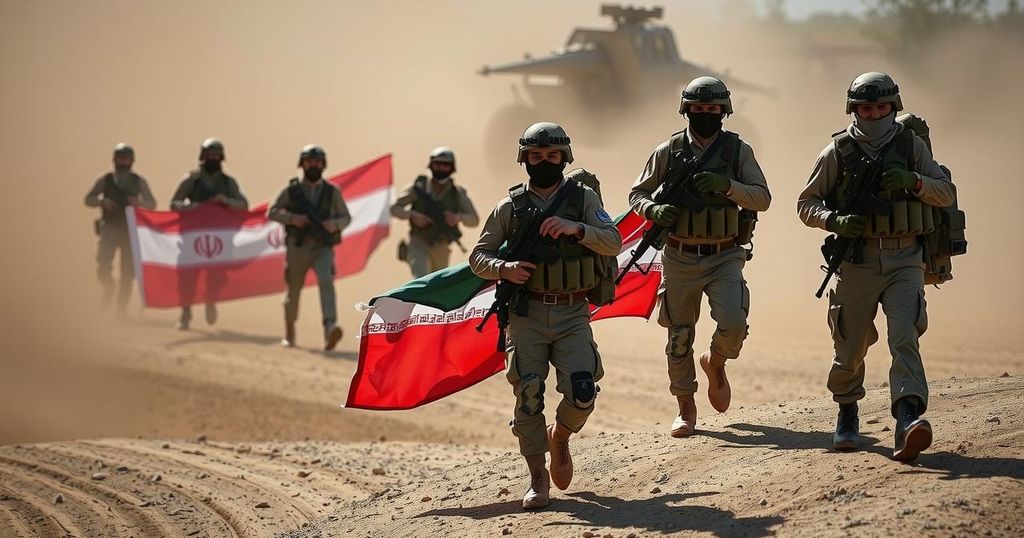Global news
’ S POPULAR MOBILIZATION UNITS, ” FAYYAD, ASIA, BADR ORGANIZATION, CONFLICT, FALEH AL - FAYYAD, HAMID AL - SHATRI, HASHD AL - SHAABI, HEZBOLLAH, IRAN, ISLAMIC REPUBLIC OF, KATAIB HEZBOLLAH, KURDISTAN AUTONOMOUS REGION, MIDDLE EAST, MILITARY OPERATIONS, MOBILIZATION, QASSEM SOLEIMANI, SOLEIMANI, SYRIA, TERRORISM
Leila Ramsay
0 Comments
Iraqi Militias Reinforce Ties with Iran Amid Shifting Regional Focus
The Iraqi Popular Mobilization Units have reiterated their allegiance to Iran, underscored by Faleh Al-Fayyad’s statements commemorating their ties, particularly to General Qassem Soleimani. As they shift focus away from Israel toward developments in Syria, the political landscape within Iraq, especially concerning Sunni and Kurdish factions, is poised for potential transformation.
Recent developments have highlighted the unwavering allegiance of Iraq’s Popular Mobilization Units (PMU) to Iran, as stated by Faleh Al-Fayyad, the PMU leader, during a commemorative meeting in Diyala province. The PMU’s declaration of loyalty, particularly towards the late General Qassem Soleimani, emphasizes their enduring connection to the Iranian state, despite shifting regional dynamics including a recent reduction in hostilities directed at Israel. As Iranian-backed militias refocus their efforts on Syria, there are concomitant political shifts within Iraq, which may stand to influence Sunni and Kurdish power dynamics as they observe the changing political landscape in eastern Syria. The way these developments unfold will be crucial in shaping Iraq’s internal politics and regional affiliations.
The Popular Mobilization Units, known as Hashd al-Shaabi, are an umbrella group of militias primarily formed to counter the ISIS threat in Iraq. They have maintained strong ties with Iran, receiving military and logistical support. The assassination of key figures such as Qassem Soleimani has compounded these alliances, leading to their continuing expressions of loyalty to Iran. Meanwhile, the political scene in Iraq is dynamic, with significant interactions occurring with Syrian leaders, suggesting that external regional changes could influence domestic Iraqi politics.
In summary, the PMU’s reaffirmation of allegiance to Iran amidst a backdrop of altered regional dynamics underscores the complexities within Iraqi politics. As focus shifts from Israel toward concerns in Syria, the implications for Sunni and Kurdish political movements could be significant. The interplay between these factions in light of changing external influences remains a pivotal issue for Iraq’s future stability and regional relations.
Original Source: www.jpost.com




Post Comment